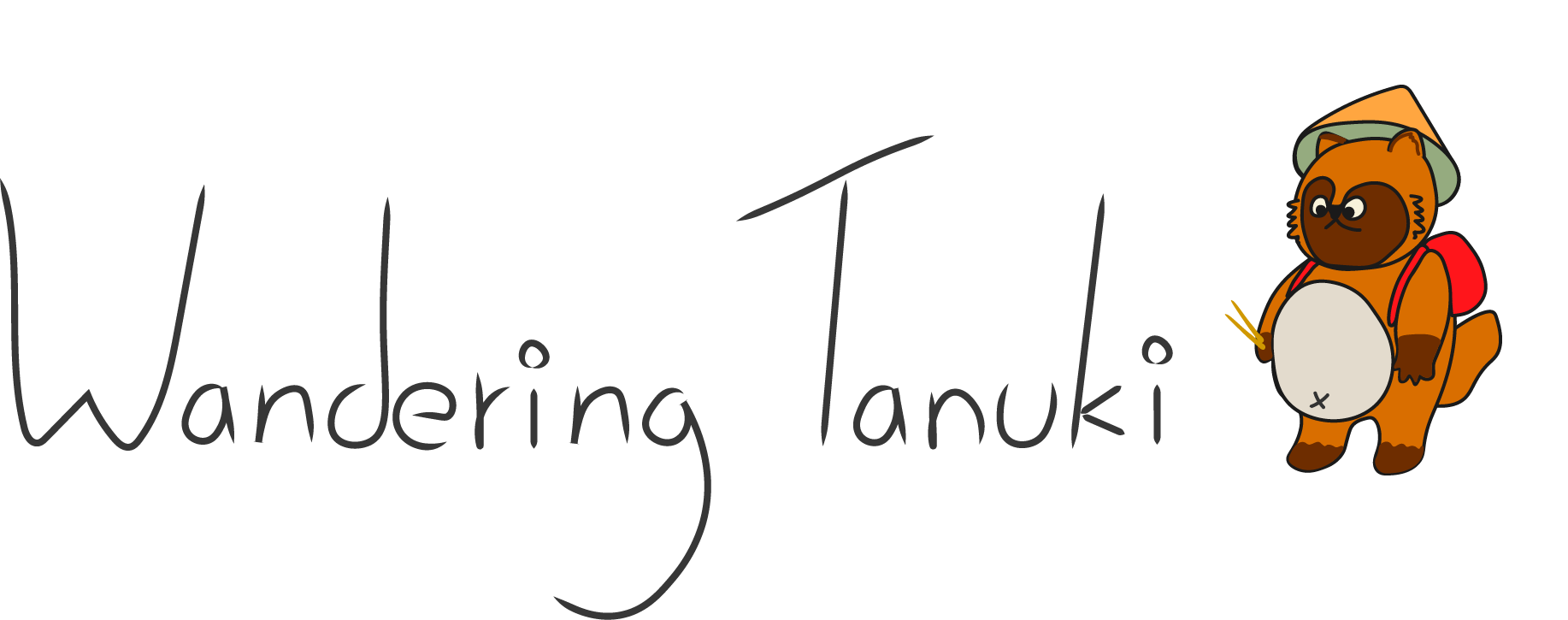How to Say Yes and No in Japanese
Do you know how to say yes and no in Japanese? This seems like a simple concept but there are actually many different ways to say yes and no. It’s especially important to understand Japanese culture so that you know when and how to use each word.

How to say Yes
はい – hai – yes
This is the most basic way to say “yes” in Japanese. Hai is polite and can be used in most situations.
Q:お寿司は好きですか?
Osushi wa suki desuka?
Do you like sushi?
A:はい!大好きです。
Hai! Daisuki desu.
Yes! I love it.
うん – un – yes
Un is the casual version of hai. It’s perfect to use with friends and family. This sounds immature, so make sure not to use this in professional situations. Keep in mind that this word can also be used as aizuchi (read more here).
Q: 今日暇?
Kyou hima?
Are you free today?
A:うん、暇だよ。
Un, hima dayo.
Yes, I’m free.
いいよ/いいですよ – iiyo/iidesuyo – sure
This is a great way to say “yes” if someone asks you to do something. It can be used informally (いいよ iiyo) or politely(いいですよ iidesuyo).
Casual:
Q:映画見に行かない?
Eiga mini ikanai?
Do you want to go see a movie?
A: いいよ! いつ行く?
Iiyo! Itsu iku?
Sure! When do you want to go?
Polite:
Q: 映画を見に行きませんか?
Eiga o mini ikimasenka?
Would you like to go see a movie?
A:いいですよ! いつ行きますか?
Iidesuyo! Itsu ikimasuka?
Sure! When would you like to go?
お願いします。- onegai shimasu – yes please
This is used as a polite response when someone is offering you something. Accept the offer by saying onegaishimasu. You can also add hai, yes, before the phrase but it isn’t necessary.
Q:袋にお入れしますか?
Fukuro ni oire shimasuka?
Would you like it in the bag?
A: お願いします。
Onegai shimasu.
Yes please.
どうぞ – douzo – go ahead
Douzo can mean many things, but you can also use it as “yes”. An example of this is when someone asks for permission.
Q: となりに座ってもいいですか?
Tonari ni suwatte mo iidesuka?
Can I sit next to you?
A: どうぞ!
Douzo!
Go ahead!
そう – sou – yes that’s right
You can use sou when you want to show agreement. It’s usually used in conversations when someone’s saying something that you relate to.
Q: このクラス前より難しいよね。
Kono kurasu mae yori muzukashii yo ne.
This class is harder than before, isn’t it?
A: そう!難しくなった気がする。
Sou! Muzukashiku natta ki ga suru.
Yes! I think it’s gotten harder.
How to say No
いいえ – iie – no
The basic and polite way to say “no” is iie. Keep in mind that in Japanese, people don’t say just いいえ. It’s usually followed by a sentence that describes the “no”.
Q:日本に住んだことがありますか?
Nihon ni sunda koto ga arimasuka?
Have you ever lived in Japan?
A: いいえ、住んだことがありません。
Iie, sunda koto ga arimasen.
No, I’ve never lived there.
The more common way you’ll encounter this phrase is when someone is responding to a compliment. In Japanese, it’s considered polite to deny compliments. In this case, いいえ(iie) is usually repeated more than once.
すてきなかばんですね。
Suteki na kaban desune.
That’s a pretty bag.
いいえ、いいえ。安物ですよ!
Iie, iie. Yasu mono desuyo!
No, no. It’s a cheap bag!
ううん – uun – no
This is the casual way to say iie. You can use it with friends and family, but it sounds a bit childish. Make sure not to use it in professional situations!
Q: ご飯食べた?
Gohan tabeta?
Have you eaten?
A: ううん。まだ。
Uun. Mada.
No. Not yet.
だめ – dame – No, you can’t
You can use this phrase when you want to tell someone not to do something. It also has the connotation of meaning “bad” so you’ll hear this as the word for scolding. It’s considered informal and you shouldn’t use this with people who are of higher social status than you (older people, strangers, acquaintances)
Q:今日遊園地に行ってもいい?
Kyou yuuenchi ni itte mo ii?
Can I go to the theme park today?
A: だめ!勉強しなさい。
Dame! Benkyou shinasai.
No, you can’t! You have to study.
ちょっと待って!- chotto matte! – no, wait!
If you need to say “no” to have someone wait, you can use this phrase. This is an informal phrase.
Q:もう食べ始めていい?
Mou tabe hajimete ii?
Can I start eating?
A: ちょっと待って!まだご飯が炊き終わってない。
Chotto matte! Mada gohan ga taki owatte nai.
No, wait! The rice hasn’t finished cooking.
無理/無理です – muri/muridesu – I can’t
If someone asks if you can do something, you can use this phrase to say “no”. Muri is the informal version and muri desu is more formal.
Casual:
Q: 今日映画見に行かない?
Kyou eiga mini ikanai?
Do you want to go watch a movie today?
A:今日は無理。学校に行かないと。
Kyou wa muri. Gakkou ni ikanaito.
Today I can’t. I have to go to school.
Formal:
Q:この後飲みに行きませんか?
Kono ato nomi ni ikimasen ka?
Would you like to go for a drink after?
A:今日は無理です。家に帰らないといけません。
Kyou wa muri desu. Ie ni kaeranaito ikemasen.
Today I can’t. I have to go home.
まだ/まだです- mada/madadesu – no, not yet
This is also a phrase you can use to mean “no, not yet”. There are two ways formal mada desu and informal mada.
Casual:
Q:夜ご飯食べた?
Yorugohan tabeta?
Have you eaten dinner?
A:まだ食べてない。
Mada tabetenai.
I haven’t eaten yet.
Formal:
Q:仕事は終わりましたか?
Shigoto wa owari mashitaka?
Have you finished work?
A:まだ終わっていません。
Mada owatte imasen.
I haven’t finished yet.
嫌だ!- iya da! – no way!
Iya da is an informal phrase that means “no way” or “I hate it”. It can be used as a “no” when you want to express distaste. Kids will say this to their parents when they are being forced to do things.
A:部屋を片付けなさい!
Heya o katazukenasai!
Clean your room!
B:嫌だ!
Iya da!
No way!
違うよ/違います – chigau/chigaimasu – It’s different or no
This is a phrase that can be used to say that something is different. You should add the correct answer after the phrase.
Casual:
Q:誕生日六月だっけ?
Tanjoubi roku gatsu dakke?
Was your birthday in June?
A: 違うよ。三月だよ。
Chigauyo. Sangatsu dayo
No. It’s in March.
Formal:
Q: アメリカ人ですか?
Amerika jin desuka?
Are you American?
A: 違います。イギリス人です。
Chigaimasu. Igirisu jin desu.
No, I’m British.
Phrases meaning Yes and No
けっこうです – kekkou desu – no thanks or sure
This phrase can mean both “no thanks” and “sure” depending on the situation. The tone of voice can be important to show which one you mean. Be sure to check out the audio samples for these!
“No Thanks”
If someone offers you something, you can respond with this phrase to say “no, thanks”. This phrase is used in polite situations. Make sure to add いいえ(iie) so that it’s clear you mean no.
Q: 袋にお入れしますか?
Fukuro ni oire shimasuka?
Would you like it in a bag?
A: いいえ、けっこうです。
Iie, kekkou desu.
No thanks.
“Sure”
The same phrase can also be used to mean yes. This can be confusing so make sure to add はい(hai) before the phrase.
Q: コーヒーいかがですか?
Koohii ikagadesuka?
Would you like some coffee?
A: はい、けっこうですね。いただきます。
Hai, kekkoudesune. Itadakimasu.
Yes, sure. I would like some.
大丈夫 – Daijoubu – yes I’m able to or I’m ok
This is another phrase that can mean yes or no depending on the situation. The word itself means “to be ok”. The tone doesn’t matter for this one, and it is more about the context.
“Yes I’m able to ”
When used as a “yes”. It means that you’re able to do something.
Q: 作文終わりそう?
Sakubun owarisou?
Do you think you’ll finish the essay?
A: 大丈夫そう。もう半分終わった。
Daijoubu sou. Mou hanbun owatta.
Yes I think I’ll be able to. I already finished half of it.
“I’m ok”
If you’re ok and don’t need anything more, you can also use it as a “no”.
Q: 薬はもっと必要ですか?
Kusuri wa motto hitsuyou desuka?
Do you need more medicine?
A:大丈夫です。
Daijoubu desu.
No thanks, I’m ok.
Saying No more politely
Japanese culture is extremely polite. It’s best not to say “no” directly, but add other phrases to soften it up. In many cases, you’ll want to say “no” but in a roundabout way.
残念ながら – zannen nagara – unfortunately
This phrase can be used to add your reason for not being able to do something.
Q: 明日映画に行きませんか?
Ashita eiga ni ikimasen ka?
Would you like to go to the movies tomorrow?
A:残念ながら、明日は予定が入っています。
Zannen nagara, ashita wa yotei ga haitte imasu.
Unfortunately, I have plans tomorrow.
大変申し訳ないのですが – Taihen moushiwake nai no desuga -I’m terribly sorry but…
Another way to say “no” is by apologizing. This phrase could be a way that service industries might say “no”.
Q: 空いている席はありますか?
Aiteiru seki wa arimasu ka?
Are there any free seats?
A:大変申し訳ないのですが、今日は満席です。
Taihen moushi wake nai no desuga, kyou wa manseki desu.
I’m terribly sorry but all the seats are full.
As you can see, there are many ways to say yes and no in Japanese! Knowing which one to use will become easier as you get to know the language and culture.
If you’re interested in other Japanese learning content be sure to check out my other blog posts like Japan in Japanese: Is it Nippon or Nihon? or How to order food at a restaurant in Japanese
~Tanuki





